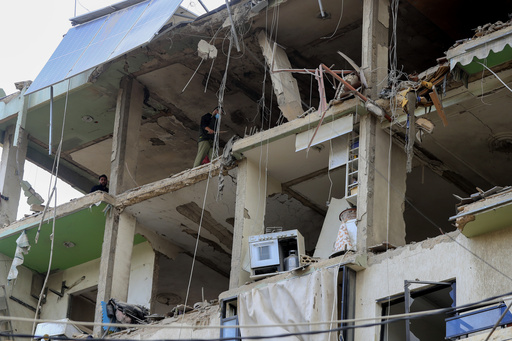
Israel announced on Monday the cancellation of an agreement that enabled the operations of the U.N. agency responsible for aiding Palestinian refugees, which is the primary provider of assistance in Gaza. This move appears to be an initial action in enforcing legislation passed the previous month, aimed at discontinuing its relationship with the agency and barring its operations within Israeli borders.
The agency in question, known as UNRWA, is accused by Israel of being compromised by Hamas, while UNRWA refutes these claims, asserting that it actively maintains its impartiality in its operations.
In a separate development, Israel reported on Sunday that its military conducted a ground operation in Syria to capture a Syrian national alleged to have connections with Iran. This marked the first instance during the ongoing conflict that Israel acknowledged military involvement in Syrian territory.
Amid increasing calls from the United States and other international entities for a cease-fire involving both Gaza and Lebanon, Israeli strikes against the Hezbollah militant group have intensified and are now extending beyond Lebanon’s borders. Concurrently, Israel finds itself engaged in an ongoing conflict with Hamas in northern Gaza.
Since the outbreak of hostilities between Israel and Hezbollah last year, around 2,900 individuals have been reported dead and approximately 13,150 injured in Lebanon, according to the Health Ministry, with figures not accounting for casualties from the recent Friday incident. Health officials indicate that nearly 25% of the deceased were women and children.
In Gaza, over a year of warfare against Hamas has led to more than 43,000 fatalities, as reported by Palestinian health authorities. They have not made distinctions between combatants and civilians, but claim that over half the casualties are women and children. This violent conflict erupted after Palestinian fighters breached Israeli territory on October 7, 2023, leading to the deaths of around 1,200 individuals, predominantly civilians, alongside the abduction of 250 others.
In the latest developments, Israel has officially ended its agreement with the U.N. agency for Palestinian refugees. This termination marks a critical point regarding the operational capabilities of UNRWA, which has served as a vital aid provider in Gaza.
The cancellation of this agreement seems to be the first practical step towards implementing newly enacted legislation that aims to cut off connections with the agency, which Israel claims has been compromised by Hamas. The UN agency, however, refutes these accusations and stresses its commitment to neutrality.
Israeli officials announced that they had informed the U.N. of the cessation of an agreement established in 1967, which had supported UNRWA’s operations. They characterized UNRWA as “part of the problem in the Gaza Strip and not part of the solution.”
Despite Israel’s assertion that other U.N. agencies and humanitarian organizations can step in to fulfill the gap left by UNRWA, numerous aid groups caution that this legislation could significantly obstruct the already challenging humanitarian situation in Gaza. With nearly 6 million individuals now categorized as Palestinian refugees—spanning those displaced during the 1948 war and their descendants—UNRWA plays a crucial role, offering essential services in education, healthcare, and other basic needs to a populace that predominantly consists of refugee families.
